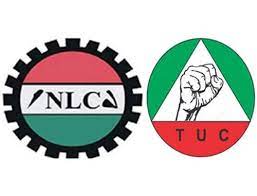
The Nigeria Labour Congress (NLC) has said it will resist any attempt by the federal government to increase the price of petrol.
NLC President Ayuba Wabba who gave the warning, stated that the planned increase in the price of petrol will send many Nigerians to “early graves”.
Recall that there are speculations that the federal government might increase the price of petrol to N302 per litre in February if the recommendation of the ad hoc committee of the National Economic Council (NEC) is implemented.
Minister of finance, budget and national planning, Zainab Ahmed in October said the federal government would only cater for subsidy on petrol in the first six months of 2022 as it planned to deregulate the downstream oil and gas sector.
The announcement stirred up reactions among Nigerians, with the NLC threatening to embark on strike if the federal government goes ahead with the plan.
Speaking on the development on Thursday, Ayuba, in an interview on Channels Television, insisted that labour unions will resist the proposed hike.
“In 2016, they promised minimum wage will be implemented and everybody will be paid. As I speak to you, six states have not even started. It is part of the agreement,” he said.
“About the palliative in 2016, we also discussed palliative. N500 billion was earmarked for palliative, including housing and the issue of transportation. These things are not in place.
“Therefore, it goes beyond promise. It is now about looking at the issue and importantly, the whole world is now in a very precarious situation. Many workers have lost their jobs, those on fixed wages their salaries cannot take them home — that is the reality.
“In this complex issue, if we compound it with the price hike of PMS, it then means that many people will go to their graves early. It is better we try to also resist the issue and make sure people are safe.”
Speaking further, Ayuba said Nigeria has every reason not to import refined fuel products, adding that the country has four refineries that should be functional.
“We have every reason not to import refined products. We have four refineries that are moribund. Those refineries are new; they are not old,” he said.
“In India, we have a refinery that is 100 years old. Refineries can be refurbished. Refineries can be upgraded from one refining capacity to another. This can be done.
“Those refineries are not old. Deliberately, they are made not to work just because there are a lot of incentives.”





